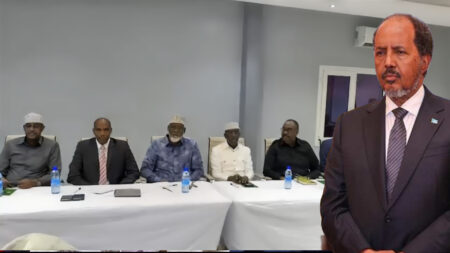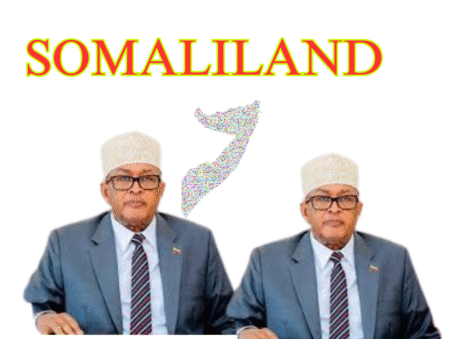Somali Parliament: Assessing Accountability and Legal Implications of a Non-Attending MP
The integrity and functionality of democratic institutions are fundamentally dependent on the accountability of their members. In Somalia, this principle is under scrutiny in the case of a Federal Member of Parliament (MP) who has not attended parliamentary sessions for an extended period while continuing to draw a salary. This MP has also publicly accused the government of corruption and financial mismanagement. This essay explores the legal basis, constitutional provisions, Somali Penal Code, international laws, and parliamentary rules relevant to this situation. It will examine whether such an MP can credibly audit the government and the broader implications of their actions.
Legal and Constitutional Basis: and Somali Constitution:
The Somali Constitution sets high standards for the conduct of public officials, including MPs. Article 79 mandates that parliamentary members actively participate in legislative duties. Persistent non-attendance without a valid reason constitutes a breach of this constitutional duty. MPs are entrusted with representing their constituents, deliberating on legislation, and overseeing the executive branch. Failure to fulfill these duties undermines the democratic process and erodes public trust.
Somali Penal Code:
The Somali Penal Code provides a framework to address the misuse of public funds. Article 268 criminalizes embezzlement by public officials. An MP claiming a salary without performing their duties misappropriates public funds for legislative work. Additionally, Article 327 addresses the abuse of office, which includes exploiting one’s official position for personal gain or causing harm to public interests. Non-attendance and unjustified salary claims fall under this provision, highlighting the legal implications of such misconduct.
Somali Employment Law:
Under Somali employment law, employees, including public officials, must fulfill their job responsibilities to justify their salaries. An MP’s persistent non-attendance while continuing to draw a salary violates these employment principles. Employment laws in Somalia also provide for disciplinary actions against employees who fail to meet their responsibilities, such as suspension or dismissal. This framework underscores the necessity of accountability and the legal consequences of failing to perform one’s duties.
International Laws and Norms
Somalia is a signatory to several international instruments that promote transparency, accountability, and integrity in public office:
Somalia is a party to the UNCAC, which aims to promote measures to prevent and combat corruption more efficiently and effectively. It encourages transparency, accountability, and integrity in public affairs and property management.
2. International Covenant on Civil and Political Rights (ICCPR):
The ICCPR includes provisions for a fair and public hearing by a competent, independent, and impartial tribunal established by law, ensuring due process in legal proceedings.
This regional instrument outlines measures to address corruption and promote good governance among member states, including Somalia.
4. OECD Guidelines for Multinational Enterprises:
While primarily directed at multinational enterprises, the principles of transparency and accountability outlined in these guidelines equally apply to public officials. They promote responsible conduct and anti-corruption measures, reinforcing the need for integrity in public office.
Parliamentary Rules: Attendance and Participation.
Parliamentary rules in Somalia require members to attend sessions and actively participate in legislative duties. Persistent absence without valid reasons can lead to disciplinary actions, including suspension or expulsion from parliament. These rules ensure that MPs fulfill their obligations to their constituents and the legislative process.
Code of Conduct:
MPs must adhere to a code of conduct that promotes integrity, accountability, and transparency. Breaches of this code can result in sanctions, including the loss of parliamentary privileges. For example, an MP who fails to attend sessions while claiming a salary breaches this code of conduct.
Oversight and Accountability:
The Somali parliament has mechanisms to ensure the oversight and accountability of its members. These include audits, investigations, and disciplinary proceedings against those found to violate their duties and responsibilities. The MP should be subject to these oversight mechanisms to address their non-attendance and salary claims.
Can the MP Audit the Government?
Conflict of Interest:
An MP involved in unethical practices, such as non-attendance while claiming a salary faces a significant conflict of interest. This MP lacks the moral authority and credibility to audit the government or accuse it of corruption and financial mismanagement. Their actions undermine the principles of transparency and accountability they claim to uphold.
Legal and Ethical Issues:
The legal and ethical violations committed by Dr. Abdillahi Hashi Abib, MP, disqualify him from performing oversight roles. His non-attendance and unjustified salary claims contravene constitutional provisions, penal code articles, employment laws, and international norms. These violations erode public trust and disqualify the MP from effectively performing auditing roles.
Public Trust:
For effective governance, public officials must be accountable and maintain public trust. An MP who engages in unethical practices undermines this trust and cannot credibly perform oversight functions. His actions create a perception of hypocrisy and weaken the integrity of the parliamentary system.
Conclusion
In conclusion, Dr. Abdillahi Hashi Abib, who has failed to attend parliamentary sessions while claiming a salary, cannot credibly audit the government or accuse it of corruption and financial mismanagement. Legal frameworks, including the Somali Constitution, Penal Code, employment laws, and parliamentary rules, alongside international laws and norms, emphasize the need for integrity, accountability, and transparency in public office. The MP’s actions violate these principles and disqualify him from effectively performing oversight functions. Addressing such misconduct is crucial to restoring public trust and ensuring the proper functioning of the Somali parliamentary system.





